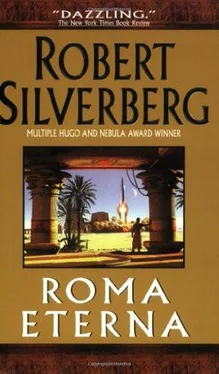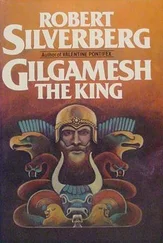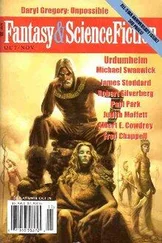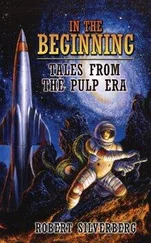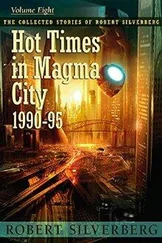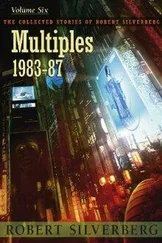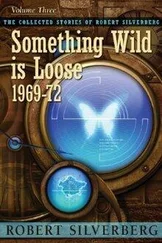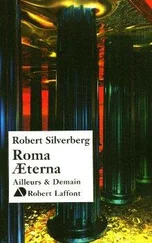Robert Silverberg - A Hero of the Empire
Здесь есть возможность читать онлайн «Robert Silverberg - A Hero of the Empire» весь текст электронной книги совершенно бесплатно (целиком полную версию без сокращений). В некоторых случаях можно слушать аудио, скачать через торрент в формате fb2 и присутствует краткое содержание. Год выпуска: 2003, ISBN: 2003, Издательство: HarperCollins, Жанр: Альтернативная история, на английском языке. Описание произведения, (предисловие) а так же отзывы посетителей доступны на портале библиотеки ЛибКат.
- Название:A Hero of the Empire
- Автор:
- Издательство:HarperCollins
- Жанр:
- Год:2003
- ISBN:978-0-380-97859-5
- Рейтинг книги:4 / 5. Голосов: 1
-
Избранное:Добавить в избранное
- Отзывы:
-
Ваша оценка:
- 80
- 1
- 2
- 3
- 4
- 5
A Hero of the Empire: краткое содержание, описание и аннотация
Предлагаем к чтению аннотацию, описание, краткое содержание или предисловие (зависит от того, что написал сам автор книги «A Hero of the Empire»). Если вы не нашли необходимую информацию о книге — напишите в комментариях, мы постараемся отыскать её.
A Hero of the Empire — читать онлайн бесплатно полную книгу (весь текст) целиком
Ниже представлен текст книги, разбитый по страницам. Система сохранения места последней прочитанной страницы, позволяет с удобством читать онлайн бесплатно книгу «A Hero of the Empire», без необходимости каждый раз заново искать на чём Вы остановились. Поставьте закладку, и сможете в любой момент перейти на страницу, на которой закончили чтение.
Интервал:
Закладка:
At the moment I don’t quite see it. Perhaps I could urge him to turn his countrymen against the growing ascendancy of the Greeks in this part of the world, or some such thing. But this week I have plenty of time to think on it, for no company is available to me just now except my own. Mahmud, who travels frequently through the area on business, has gone off to one of the coastal villages to investigate some new mercantile venture. Nicomedes also is away, down into Arabia Felix, where he and his fellow Greeks no doubt are conniving covertly to raise the price of carnelians or aloe-wood or some other commodity currently in great demand at Roma.
So I am alone here but for my servants, a dull lot with whom I can have no hope of companionship. I toyed with the idea of buying myself a lively slave-boy in the bazaar to keep me company of a more interesting kind, but Mahmud, who is so fiery in his piety, might suspect what I had in mind, and I would not at this time want to risk a breach with Mahmud. The idea of such a purchase is very tempting, though.
I think longingly all the time of the court, the festivities at the royal palace, the theater and the games, all that I am missing. Fuscus Salinator: what is he up to? Voconius Rufus? Spurinna? Allifanus? And what of Emperor Julianus himself, he who was my friend, almost my brother, until he turned on me and condemned me to languish like this amidst the sands of Arabia? What times we had together, he and I, until my fall from grace!
And—fear not—I think constantly of you, of course, Horatius. I wonder who you spend your nights with now. Male or female, is it? Lupercus Hector? Little Pomponia Mamiliana, perhaps? Or even the cup-boy from Britannia, whom surely the Emperor no longer would have wanted after I had sullied him. Well, you do not sleep alone, of that much I’m certain.
What, I wonder, would my new friend Mahmud think of our court and its ways? He is so severe and astringent of nature. His hatred for self-indulgence of all sorts seems deep as the bone: a stark prince of the desert, this man, a true Spartan. But perhaps I give him too much credit, you say? Set him up in a villa on the slopes of the Palatine, provide him with a fine chariot and a house full of servants and a cellar of decent wine, let him splash a bit in the Emperor’s perfumed pool with Julianus and his giddy friends, and it may be he’ll sing another tune, eh?
No. No. I doubt that very greatly. Bring Mahmud to Roma and he will rise up like a modern Cato and sweep the place clean, purging the capital of all the sins of these soft Imperial years. And when he is done with us, Horatius, we shall all be faithful adherents to the creed of Allah.
Five days more of solitude went by, and by the end of it I was ready, I think, to open my veins. There has been a wind blowing here all week that bakes the brain to the verge of madness. The air seemed half composed of sand. People came and went in the streets like phantoms, all shrouded up to the eyes in white. I feared going outside.
For the past two days, though, the air has been calm again. Mahmud yesterday returned from his venture from the coast. I saw him in the main street, speaking with three or four other men. Even though he was some distance away, it was plain that Mahmud was doing nearly all the talking, and the others, caught in his spell, were reduced to mere nods and gestures of the hand. There is wizardry in this man’s manner of speech. He casts a powerful spell. You are held; you cannot choose but listen; you find yourself believing whatever he says.
I did not feel it appropriate to approach him just then; but later in the day I sent one of my servants to his house bearing an invitation to dine with me at my villa, and we have spent some hours together this very day. It was a meeting that brought forth a host of startling revelations.
Neither of us chose to plunge back into the theological discussion of our previous conversation, and for a while we made mere idle arm’s-length talk in the somewhat uneasy manner of two gentlemen of very different nations who find themselves dining in intimate circumstances and are determined to get through the meal without giving offense. Mahmud’s manner was genial in a way I had not seen it before. But as the dishes of the first course were being cleared away the old intensity came back into his eyes and he said somewhat abruptly, “And tell me, my friend, how did it happen, exactly, that you came to our country in the first place?”
It would hardly have been useful to my burgeoning friendship with this man to admit that I had been banished here on account of my pederasty with Caesar’s intended plaything. But—you must trust me on this—I had to tell him something . There is no easy way of being evasive when the burning eyes of Mahmud son of Abdallah are peering intently into your own. I could lie more readily to Caesar. Or to Jove himself.
And so, on the principle that telling part of the truth is usually more convincing than telling an outright lie, I admitted to him that my Emperor had sent me to Arabia to spy on the Greeks.
“ Your Emperor who is not their Emperor, though it is all one empire.”
“Exactly.” Mahmud, isolated as he had been all his life from the greater world beyond Arabia’s frontiers, seemed to understand the concept of the dual principate. And understood also how little real harmony there is between the two halves of the divided realm.
“And what harm is it that you think the Byzantine folk can cause your people, then?” he asked.
There was a tautness in his voice; I sensed that this was something more than an idle conversational query for him.
“Economic harm,” I said. “Too much of what we import from the eastern nations passes through their hands as it is. Now they seem to be drifting down here into the middle of Arabia, where all the key trade routes converge. If they can establish a stranglehold on those routes, we’ll be at their mercy.”
He was silent for a time, digesting that. But his eyes flashed strange fire. His brain must have been awhirl with thought.
Then he leaned forward until we were almost nose to nose and said, in that low quiet voice of his that seizes your attention more emphatically than the loudest shout, “We share a common concern, then. They are our enemies, too, these Greeks. I know their hearts. They mean to conquer us.”
“But that’s impossible! Nicomedes himself has told me that no army has ever succeeded in seizing possession of Arabia. And he says that none ever will.”
“Indeed, no one can ever take us by force. But that is not what I mean. The Greeks will conquer us by slyness and cunning, if we allow it: playing their gold against our avarice, buying us inch by inch until we have sold ourselves entirely. We are a shrewd folk, but they are much shrewder, and they will bind us in silken knots, and one day we will find that we are altogether owned by Greek traders and Greek usurers and Greek shipowners. It is what the Hebrews would have done to us, if they were more numerous and more powerful; but the Greeks have an entire empire behind them. Or half an empire, at least.” His face was suddenly aflame with that extraordinary animation and excitability, to the point almost of frenzy, that rose in him so easily. He clapped his hand down on mine. “But it will not be. I will not allow it, good Corbulo! I will destroy them before they can ruin us. Tell that to your Emperor, if you like: Mahmud son of Abdallah will take his stand here before the Greeks who would steal this land, and he will march on them, and he will drive them back to Byzantium.”
It was a stunning moment. He had told me on the very first day that he intended to bring Arabia under the rule of a single god and of a single invincible king; and now I knew who he expected that invincible king to be.
Читать дальшеИнтервал:
Закладка:
Похожие книги на «A Hero of the Empire»
Представляем Вашему вниманию похожие книги на «A Hero of the Empire» списком для выбора. Мы отобрали схожую по названию и смыслу литературу в надежде предоставить читателям больше вариантов отыскать новые, интересные, ещё непрочитанные произведения.
Обсуждение, отзывы о книге «A Hero of the Empire» и просто собственные мнения читателей. Оставьте ваши комментарии, напишите, что Вы думаете о произведении, его смысле или главных героях. Укажите что конкретно понравилось, а что нет, и почему Вы так считаете.
